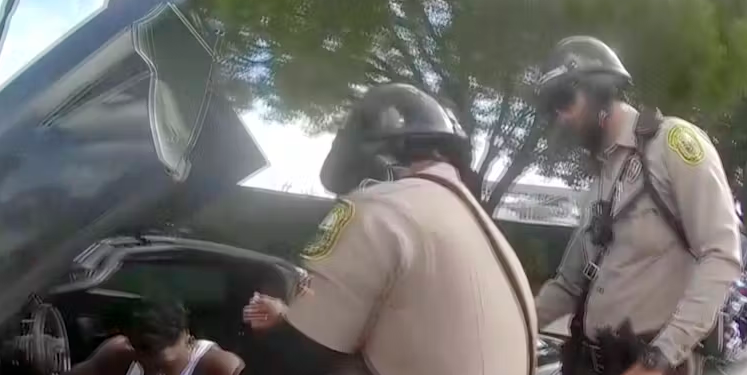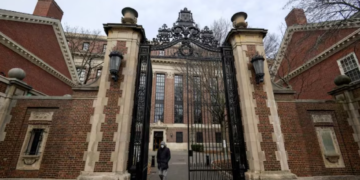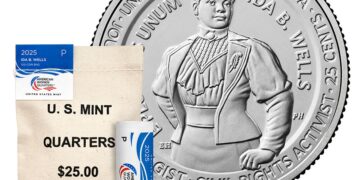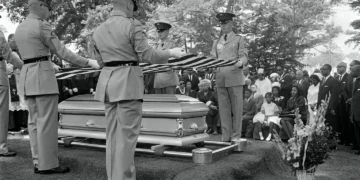Sep 27, 2024 Story by: Editor
Traffic stops by Chicago police have surged over the last nine years, a trend the American Civil Liberties Union (ACLU) calls the “new stop-and-frisk.” Stop-and-frisk allows officers to stop individuals based on “reasonable suspicion” of criminal activity, a practice documented to disproportionately impact Black and Latino communities—not just in Chicago, but across the U.S., including New York. In Chicago, it declined after a 2015 reform agreement between the ACLU and the Chicago Police Department.
Since then, however, traffic stops have spiked, with numbers rising from fewer than 200,000 in 2016 to over 570,000 in 2023. Much like stop-and-frisk, Chicago police disproportionately stop Black drivers, according to a recent study examining racial bias in traffic enforcement.
Our study, published in June 2024, analyzed the racial composition of drivers across Chicago’s streets, comparing ticketing patterns from speed cameras and police stops. Findings reveal that speed cameras issue tickets to Black and white drivers roughly in proportion to their presence on the road. However, police stops reflect a stark racial disparity, with Black drivers stopped at much higher rates than their representation in traffic.
For example, on roads where Black drivers make up about half of all drivers, they receive approximately 54% of automated camera citations but account for about 70% of police stops. On roads where white drivers are predominant, they make up around 50% of camera citations but less than 20% of police stops.
Driving While Black
Our findings contribute to the growing body of evidence pointing to racial bias in traffic enforcement—a phenomenon often summarized as “driving while Black.” Historian Gretchen Sorin, in her 2020 book Driving While Black, explores how cars once symbolized newfound freedom for Black Americans while also introducing new risks. By the 1990s, the world watched as incidents like Rodney King’s 1991 police beating in Los Angeles highlighted the dangers faced by Black drivers. The acquittal of the officers involved led to the 1992 Los Angeles riots, which resulted in over 50 deaths, thousands of injuries, and extensive property damage.
More recently, traffic stops that escalated fatally have underscored this issue, including the deaths of Daunte Wright and Tyre Nichols. In another recent incident, Miami Dolphins player Tyreek Hill was pulled over by police in Miami Gardens, Florida, and was forcibly removed from his vehicle and handcuffed. This raised questions about the officers’ aggressive approach.
Reforming Enforcement for Fairness and Safety
Human biases are inherent but can become particularly harmful when carried out by police. Even when no force is used, uneven enforcement undermines community trust in law enforcement. To address racial bias, police departments have implemented implicit bias training, which has shown some effect on officer attitudes but has not noticeably changed racial patterns in police stops.
Deeper reforms may be needed to address these disparities and improve traffic enforcement. In Illinois, legislators recently proposed a bill to prevent traffic stops for minor offenses, like seatbelt violations or lane usage issues. Berkeley, California, is also exploring the use of civilian traffic enforcement, similar to unarmed parking enforcement teams, to reduce the risk of police escalation.
Safety remains the main rationale for traffic stops, and ensuring it is vital. Between 2013 and 2022, Chicago averaged 44 pedestrian, seven bicyclist, and 78 passenger fatalities annually due to crashes. In contrast, Oslo, Norway, saw just four traffic deaths per year from 2015 to 2019. If Chicago’s streets were as safe as Oslo’s, it would see about 15 fatalities annually instead of 129.
Increasing automated traffic enforcement may help Chicago improve traffic safety and reduce police involvement. Automated cameras can catch serious violations, such as speeding and running red lights, without police intervention. While cameras alone won’t guarantee street safety, they have significantly reduced fatal and severe crashes in Chicago and elsewhere.
In 2023, over half of Chicago’s police stops involved license, registration, or equipment checks. Automating enforcement for such non-moving violations could reduce police-driver interactions, minimizing opportunities for racial bias and escalation. This shift could also allow police to focus on other pressing priorities.
As our data shows, cameras don’t discriminate or escalate situations—they issue tickets based solely on traffic violations. Source: The Conversation

















